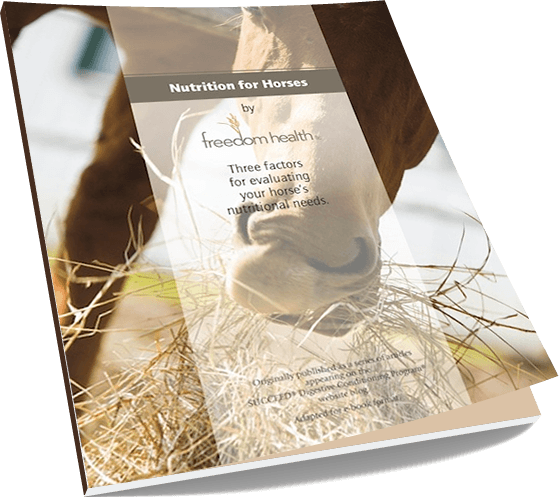At it’s most basic level, an equine gastric ulcer is a lesion occurring on the lining of a horse’s stomach.
The stomach accounts for only about 10% of a horse’s digestive tract.It is divded into two distinct regions,, separated by a band called the margo plicatus. The lower two-thirds is called the “glandular portion” because it is lined with glands that secrete gastric juices like acid and enzymes, as well as bicarbonate and mucous which help to protect the mucosal lining. The upper “non-glandular” portion of the stomach, above the margo plicatus, is less protected and, thus, more vulnerable to ulcers. It is not surprising, then, that the majority of equine gastric ulcers form in the upper third of the stomach, right above the margo plicatus.
What Causes Equine Gastric Syndrome?
While it is generally believed that acid, stress, and perhaps bacteria cause equine gastric ulcer syndrome, the truth is, no one knows exactly what induces this condition.
We do, however, know that ulcers occur when the mucosal lining of the stomach has been compromised. There are several ways in which this can happen:
Acids Damage Equine Stomach Lining
Parasites Damage Equine Stomach
The eggs of botflies are easily consumed by the horse. Botfly larvae, or “bots,” can live in a horse’s stomach and create pits that, with constant irritation from stomach acid or the introduction of bacteria, could lead to gastric ulcers. Recent studies have shown that bots are becoming a growing problem as they become more resistant to anthelmintics and their numbers increase.
Bacteria Can Compromise Lining
It has been shown that certain bacteria are the primary cause of ulcers in humans. For this reason, it is hypothesized that certain bacteria strains may cause ulcers in horses as well.
Lifestyles That Increase the Risk of Gastric Ulcer Syndrome
Modern care and feeding may also affect the horse’s risk for gastric ulcers. While ulcers are a danger for all horses, incidences are higher in those that compete, travel, or train heavily, and are fed intermittently with a diet high in grain.
As mentioned, the horse’s stomach must be protected from the constant stream of acid being produced. However, many of these horses are fed big portions of highly processed grains only a few times a day.
The horse’s fragile digestive system is designed for a continuous supply of grass or other high fiber material.
The trickle of forage constantly moving through the stomach, as well as the increased saliva production from frequent feedings, can help create a natural defense against gastric ulcers. Because today’s feeding practices counter the horse’s biological digestive process, domesticated horses are at a much higher risk for gastric ulcers.
Reduce the Risk for Equine Gastric Ulcer Syndrome
We believe that equine gastric ulcers are an induced condition, a consequence of modern equine husbandry. While grain is necessary to provide horses with the energy they need to perform, there are several steps you can take to reduce the risk for gastric ulcers:
- Include chaff (or chopped hay) with feed. This can increase the amount of chewing and time required to eat, thereby increasing both saliva production and the length of the meal.
- Feed smaller, more frequent meals. This will allow the stomach to function like nature intended and keep your horse at its best.
- Increase forage intake. Horses require at least 1.5% of their body weight in forage (grass, hay) every day. For extra calories, consider adding soaked beet pulp to the diet.
By mimicking nature in how we feed our horses, and by taking steps to protect and promote overall digestive wellness, we can reduce the risk for equine gastric ulcer syndrome.
Learn more by reading the Your Horse Ulcer-Free series:

FREE eBook:
Nutrition for Horses
Three factors for evaluating
your horse’s nutritional needs.
